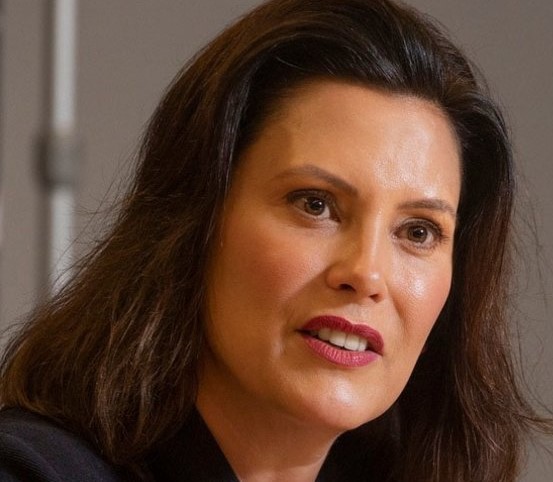Published:May 2, 2021
-Washington Post
One “irritant,” he said, is “the claim from the state that they are doing this to protect the Great Lakes, that they’re more interested in protecting the Great Lakes than we in Canada are. Basically, we reject that completely.”
Line 5, built in 1953, is part of Enbridge’s mainland system, which carries fuel from Alberta’s oil sands to the Midwestern United States and Eastern Canada. Running from Superior, Wis., to Sarnia, Ontario, it is a key conduit for refineries in those regions, which make gas, propane and home-heating oils, as well as jet fuels for airports in Toronto and Detroit.
For 4.5 miles under Michigan’s Straits of Mackinac, the waterway where Lake Huron meets Lake Michigan, Line 5 splits into dual pipelines..
Whitmer announced last fall that she was revoking the 1953 easement that allows the lines to cross the straits, citing the “unreasonable risk” that they pose to the Great Lakes and what she said were Enbridge’s “persistent” breaches of the easement’s terms.
The announcement listed several infractions, including failures to ensure that the lines are supported every 75 feet and that they’re covered by a coating to prevent erosion. It noted two incidents, in 2018 and 2019, in which the pipelines were struck and damaged by cables or anchors from boats.
Enbridge is challenging the move in U.S. federal court. It has vowed to continue operating the pipeline beyond Whitmer’s deadline, absent a court order. The sides began mediation in April..
In 2018, the company negotiated a deal with Michigan Gov. Rick Snyder (R) to rehouse the lines under the straits in a concrete tunnel.
Beth Wallace of the National Wildlife Federation said Line 5 poses an “urgent” threat, and the process of securing permits for the tunnel and constructing it will take longer than the company asserts. She said the firm has overstated the impacts of a closure.
Seamus O’Regan, Canada’s natural resources minister, has cast a shutdown as a threat to Canada’s energy security — one he is “watching like a hawk.” He told a parliamentary committee in March that the pipeline provides 53 percent of Ontario’s crude and 66 percent of Quebec’s and 55 percent of Michigan’s propane needs.
Sarnia Mayor Mike Bradley said the dispute is fueling “a lot of anxiety” in the border city, where he said thousands of jobs are at risk.
“I’ve written more letters to the governor than Saint Paul wrote to the Corinthians,” he told Canadian lawmakers in March, “and I’ve gotten no responses back.”
Bradley told The Washington Post that Whitmer’s behavior is doing “immense” damage to cross-border ties.
“She may be focused on her one issue, but the relationship between Ontario and Michigan has been set back, in my view, for decades,” he said.
“These oil pipelines in the Straits of Mackinac are a ticking time bomb,” he said. “Their continued presence violates the public trust and poses a grave threat to Michigan’s environment and economy.”
Canada has not ruled out invoking a 1977 treaty that bars officials from actions that “would have the effect of impeding, diverting, redirecting or interfering with … the transmission of hydrocarbon in transit” unless there was a natural disaster or operating emergency.
The treaty has never been invoked, said Kristen van de Biezenbos, an energy law professor at the University of Calgary, in part because there don’t appear to have been other attempts by public officials to stop a working pipeline that crosses the U.S.-Canada border.
That “tells you something about how unusual Line 5 is,” she said.
Several oil companies have said they believe a shutdown in the near term to be unlikely, but they have contingency plans in place. Mark Little, chief executive of Suncor, said in a February earnings call that the company bought a stake in a different pipeline that could import oil from Maine to Montreal. A spokeswoman for the Greater Toronto Airports Authority said fuel sources for Toronto’s Pearson International Airport are “diversified and consequently not at risk.”
Canada is the world’s fourth-largest producer of crude oil. The United States is its top customer.




